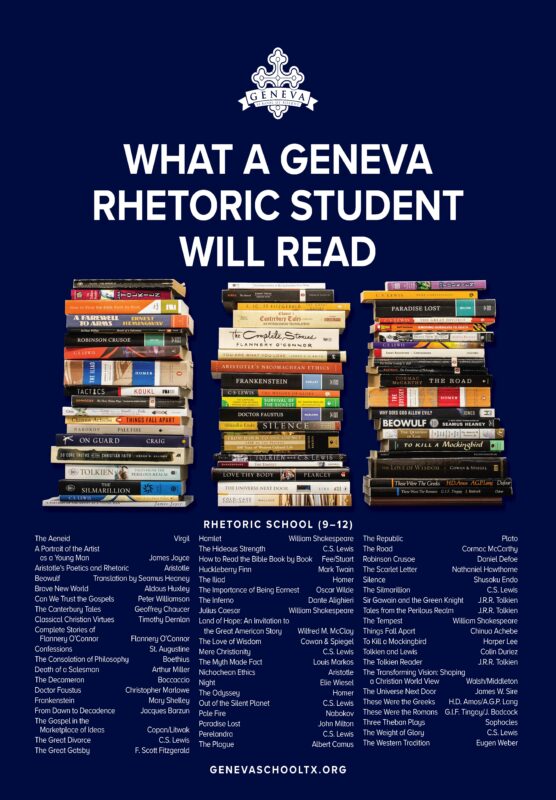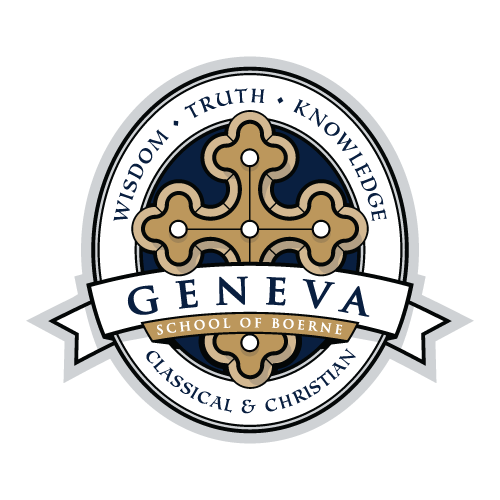At Geneva, we adhere to classical methodology. A classical and Christian education is essentially a liberal arts education that strives to meet the ancient Roman ideal of equipping men and women to function as free men and women in the service of God. The Bible commands all Christians to worship God with our minds and to be good stewards of the talents and abilities with which He has created us. Accordingly, we focus on providing an education that is varied, rich and challenging to the advanced student while still accessible to the average student.
Classical educational methodology is based upon the trivium (Latin for “the place where three roads meet”) which was first articulated in the early middle ages and is carefully tailored to the predictable developmental stages of the student. Rhetoric is the third stage of the trivium.
The Rhetoric School, serving students in ninth through twelfth grades, builds upon the Grammar School foundation of fundamental skills and facts and the Logic School development of critical thinking skills. With these basic knowledge-building skills, students are taught logic and advanced rhetoric in order to clearly, eloquently, respectfully and persuasively communicate their thoughts both orally and in writing. Students study a modern Romance language or continue with Latin; mathematics through calculus; all of the foundational sciences including biology, chemistry and physics (offered as AP courses); history, government, fine arts; and the Western Canon engaged from a biblical worldview.
In all three stages of the trivium, students study works that have withstood the test of time. Subjects are integrated across disciplines and students study complete literary works instead of textbooks comprised of literary excerpts. Our goal is to develop in our students a life-long love of learning and the mental habits necessary to develop mature, logical, and biblical thinking.
Each year, Rhetoric students sign the Rhetoric Honor Code which is their pledge to abide by the standards set forth in the code.
Every senior is asked to reflect upon their time at Geneva and answer a series of questions. Portions of their answers are highlighted in The Eagle Eye the first three quarters of the school year. To read their complete answers, visit the Senior Profiles page.
Following are all the books Rhetoric school students will read throughout the school year.

